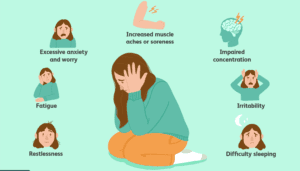
- Wildfire smoke events linked to 6.3% increase in anxiety-related emergency department visits.
- Women, girls, and older adults more vulnerable to severe anxiety after wildfires.
- Study highlights need for climate awareness, risk communication, and mental health support.
Research from Emory University paints a concerning picture: wildfires in the western US are not just an environmental threat, but also a mental health one. The study, analyzing data from five states over a decade, found a 6.3% increase in anxiety-related emergency department visits during wildfire smoke events. This alarming data highlights the growing public health challenge of mental health amidst climate change.
The study further reveals vulnerabilities within this trend. Women, girls, and older adults exhibited a higher risk of developing severe anxiety disorders after wildfire exposure. This underscores the need for targeted interventions and support systems for these populations.
Beyond immediate assistance, the study emphasizes the importance of long-term strategies. Authors call for enhanced disaster risk reduction, climate awareness campaigns, and risk communication tailored to vulnerable populations. Implementing these measures can empower individuals and communities to cope with the mental health impacts of wildfires and a changing climate.
This research serves as a wake-up call, urging action on both climate change mitigation and mental health support. By acknowledging the mental health toll of wildfires and taking proactive steps, we can build a more resilient future for all.














